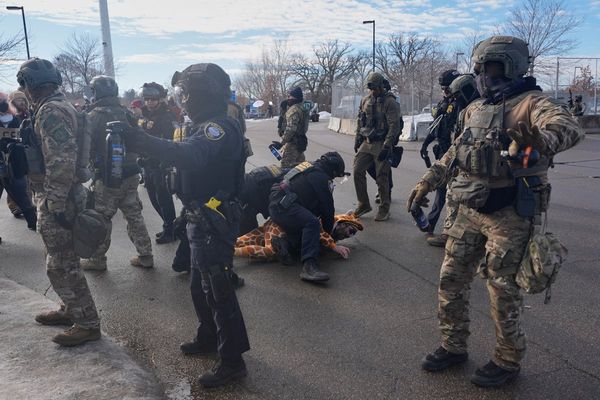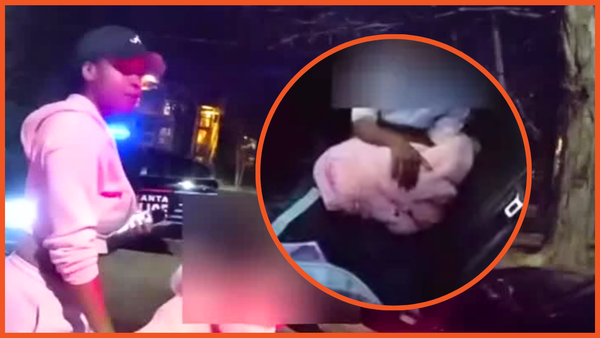- In short: Foster and kinship carers in some states and territories don't have a working with vulnerable people (WWVP) check — last year, almost half the carers in the ACT didn't have the legally required check.
- What's next? The ACT and Victoria say they are making progress with getting the WWVP registration for more carers.
In Alyssa's* childhood home, appearances mattered.
She grew up in an "affluent" suburb of Melbourne, attending "some of the best" schools.
"But behind closed doors — people don't see all that," she said.
For all the wealth of her home, Alyssa would spend a lot of time in the depths of a wardrobe, retreating from her stepfather's fists.
But even with the stepfather gone, she felt unloved at home. Neglected, even.
As Alyssa's relationship with her mother broke down, Victoria's child protection authorities stepped in.
They placed the 15-year-old with an experienced foster carer Alyssa estimates was in her 70s.
Sitting in her new room decked with a stool and a bunk bed, Alyssa felt like an intruder.
So, when her new foster brother — the carer's son in his 20s — invited her to go four-wheel driving, she felt "grateful" to be included.
"That became like a thing. If he was going to the servo even, I'd go too. If he was going to hang out at a friend's house, I would go too," she said.
"It was always under the guise of, 'it's boring here, mum's old, it's fine, we've done this before'."
Having won her over, Alyssa said the man started sexually abusing her.
In June last year, Alyssa, now in her 30s, was offered compensation by the National Redress Scheme for the abuse she endured under government's care.
"This wasn't an isolated incident that only happened to me. It's very common and it's not spoken about. It's only being spoken about when it ends in tragedy," she said.
The Department of Families, Fairness and Housing that was responsible for Alyssa when she was in care could not comment on individual cases.
In a statement, it said the abuse and mistreatment of children and young people was unacceptable.
"We apologise to affected individuals and families and strive to work with service providers to continually improve our policies and procedures," a spokesperson said.
Factors such as age and gender of members of the foster home were taken into account when finding a suitable placement for a child, the department said.
"The department has clear guidelines on how staff and carers are to fulfil their duty of care to children and young people in a way that is reasonable and proportionate to any risk posed," the spokesperson said.
But people with intimate knowledge about the system say the problem is not confined to one state, or territory, and governments are failing to ensure the homes where children are sent are safe.
Workers 'reprimanded' for investigating carers' backgrounds
Jo* was working as a director for the ACT government in 2019, when she read that a teenage boy had inflicted horrific sexual abuse on his much younger foster sister.
"He physically and sexually assaulted her with an umbrella," she said.
"I think that was the thing I'd read that pushed me over the edge."
She said the child safety department knowingly left children in potentially unsafe homes, with carers who had had concerns raised about them.
"I was told, 'Well, they didn't assault the foster children, they've assaulted other people,'" she said.
Working at the Justice and Community Safety Directorate, Jo noticed two staff members were spending hours every day trawling through the supreme and magistrate's court lists.
They were manually checking the daily list of alleged offenders against the names of people the government had trusted with looking after some of Australia's most vulnerable children.
"They weren't given full names of people. They were often guessing whether someone with the right initials and surname was the person on the list that they were checking, in terms of people who were cleared," Jo said.
Until last month, it was law for ACT kinship and foster carers to have a valid Working with Vulnerable People (WWVP) registration.
Jo said the government had not been enforcing the policy, which she called the bare minimum assessment of whether a person posed an unacceptable risk to children.
She said one agency had around 70 carers on the books who did not hold a valid registration.
Assuming it was an oversight, she said she raised it with her senior management, only to find the government was "actively not pursuing" the WWVP criterion.
"It was assumed that many of the people on the list would not be able to obtain a WWVP clearance because they had a criminal record or other significant risk factors that would fail them," she said.
"Some of these people had seriously assaulted others."
She said she felt her "career was being threatened for raising these issues".
"I felt that the system was actively trying to protect itself rather than to prioritise the protection of our most vulnerable children. The culture was absolutely to constantly hide issues, even from ministers," she said.
Another former employee of the ACT government — child protection worker Melissa, who left in 2020 — said she had been "reprimanded" for investigating the background of some of the carers children were placed with.
"If I thought something was wrong, you can request checks kind of on the quiet. Most of the people were coming back with violent offences, drug offences. The most common was domestic violence offences," she said.
"Their argument was always, 'We've reviewed the current living situation and investigated the current safety and we've deemed that it is in the best interests of the child to stay where they are.'
"There is a huge shortage of suitable foster carers. Not that the way they're resolving it is right, but there is a huge shortage across Australia."
Melissa said she had worked on kinship care cases, where despite the police involvement and expired WWVP registration children were left with the carers.
"My instructions were basically, 'Don't worry about it, where else is the kid going to go anyway?'" she said.
FOI documents reveal non-compliance
Documents accessed under Freedom of Information (FOI) legislation show on April 11 last year, almost half of the ACT's foster and kinship carer cohort did not hold a valid WWVP registration.
Of the 865 carers, 422 did not have it — either because it had expired, or the department did not have details of an application being made.
In its response, the ACT Community Services Directorate (CSD) said "under very specific circumstances", foster and kinship carers were allowed to look after children without a WWVP registration.
It said some foster or kinship carers, who did not hold a current check, were still the best person to care for a child.
To reflect that, the Working with Vulnerable People Act was amended last month, giving carers without a WWVP registration "an alternative way to be assessed", the CSD said.
"The exceptional discretion is only used where a risk assessment has been undertaken and where it can be demonstrated that there is no unacceptable risk posed to the child or young person," a government spokesperson said.
"The discretion is only applied where the person is a family member or significant person (a kinship carer) or someone who has had contact and experience with a child or young person, such as within an existing out-of-home care placement (a foster carer)."
The CSD said it had made "significant process" in addressing WWVP compliance — as of November last year, 98 out of 832 approved carers did not have the check.
It said the WWVP team received notifications about new charges and other relevant information regarding carers, and the best interests of children and young people were always at the centre of practice.
"All children should be safe from the impacts of domestic and family violence and be able to achieve the best possible life outcomes," the spokesperson said.
In a statement, Minister for Families and Community Services Rachel Stephen-Smith said she had been clear with the CSD that she expected to be informed about both challenges and achievements.
"I am regularly briefed on the individual circumstances of children, young people and their families where concerns are raised, as well as about systemic challenges," she said.
"I also engage regularly with stakeholders, carers and children and young people who are forthright in raising issues with me, which I then follow up with the Directorate."
FOI documents obtained from Victoria's Department of Families, Fairness and Housing dating between 2020 and 2022 show the figure of kinship carers who do not have a valid Working with Children Check (WWCC) has been fluctuating, peaking on April 15, 2021 with 283 non-compliant carers, as opposed to 7,345 who were compliant.
More recently, the total number of carers has been dropping, bringing down the figure of those without the WWCC. On June 9 last year, there were 103 carers without the check versus 4,724 who held one.
The DFFH said it helped people overcome barriers to apply for the WWCC.
"We fund foster care agencies to ensure that a current Working with Children Check is in place for all foster carers and adults in a care household prior to placement and to provide individualised support and monitoring throughout that placement to ensure the child or young person's safety and wellbeing needs are met," a spokesperson said.
The DFFH said the Department of Justice and Community Safety annually reviewed the checks and notified them if a carer had received a negative notice, which would then lead to the immediate removal of a child from that home.
Carers calling the shots
Insiders say some carers are calling all the shots, knowing that child protection departments would be "stuffed" without them.
Former Tasmanian child protection worker Kylie Howe, who left the industry in 2020, said there needed to be an investigation into how the department handled complaints against carers.
She said some carers had "quite a few" allegations against their names.
"That kind of indicates to me that something's obviously not OK. But there wasn't really anything done about it," she said.
"That's because there's a lack of carers.
"There are some carers who have a lot of power. They've been foster caring for years and years, and they'll take up to seven kids at a time, and they'll take challenging kids as well.
"The department without them would be really stuffed."
When Tara Payne, 18, raised concerns about one of her foster care arrangements she said it took a month for her to be removed from that placement.
"I got horrible marks that year, my schooling just went downhill," she said.
"My mental health was incredibly low.
"That was the lowest point that I have ever been at, ever.
"I was like, I have to get out of this environment."
Tara said even though Tasmania's Department for Education, Children and Young People (DECYP) workers were required to visit her every three months, they would have been oblivious to her plight in that home.
"My entire foster care experience, I rarely — if ever — had those department workers come every three months," she said.
"At one point, I don't remember seeing one for at least a year."
The department said current policy saw that children in out-of-home care were visited every three to six weeks, although contact may occur more frequently.
"Depending on the age of the child, in addition to face-to-face visits by child safety officers and others in the care team, contact may be maintained using phone and video calls," a spokesperson said.
The department said it was implementing a new Wellbeing in Care policy which aimed to respond to concerns earlier and better support carer households.
"Any carer with concerns about the support provided to them, or the children in their care, should make contact so their concerns can be addressed," the spokesperson said.
The department said it was also developing an Out of Home Care Accreditation Framework and a Carer's Register, and worked closely with the Foster and Kinship Carers Association.
*Name has been changed.







